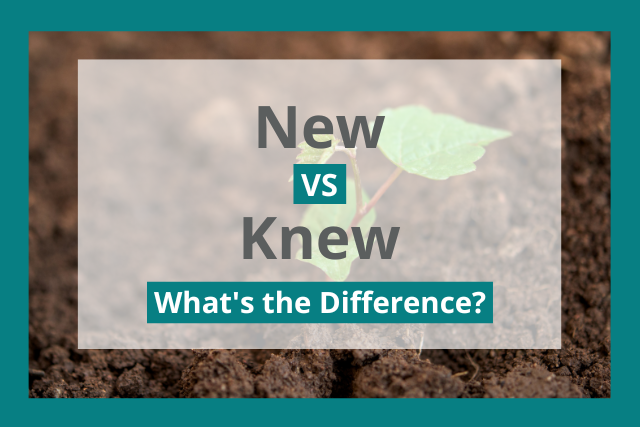
The words new and knew are often confused because they are homophones.
This means that they have the same pronunciation but different meanings. They have the same pronunciation because the "k" in knew is silent. There are completely different parts of speech. We'll help you understand the difference.
New is an adjective (something that adds to the meaning of a noun) and means recently made, or created.
- These are my new shoes.
- I have a new shirt on.
Knew is the past form of the verb to know. It means to be aware of something through observation or inquiry.
- I knew he was wrong.
- I knew you would find it.
Out of the two words, new is the most common. It appears about three times more frequently than knew.
What are other homophones for new?
Knew and new are not the only homophones. There are also some rarer ones. The full set of homophones with new in English are: gnu, knew, and nu.
Is the correct phrase blaze a new trail or blaze a knew trail?
The correct phrase is "blaze a new trail". These phrases are often confused because they are homophones.
Is the right expression new lease on life or knew lease on life?
The right phrase is "new lease on life". These phrases are often confused because they have the same pronunciation but different meanings.
Should I use neither knew nor cared or neither new nor cared?
You should use "neither knew nor cared". These phrases are often confused because they have the same pronunciation but different meanings.
Should I use who knew how to or who new how to?
The correct expression is "who knew how to". These phrases are often confused because they are homophones.
What's the right phrase, those who knew him or those who new him?
The right phrase is "those who knew him". These phrases are often confused because they are homophones.
What's the right phrase, knew better than to or new better than to?
The correct expression is "knew better than to". These phrases are often confused because they are homophones.
